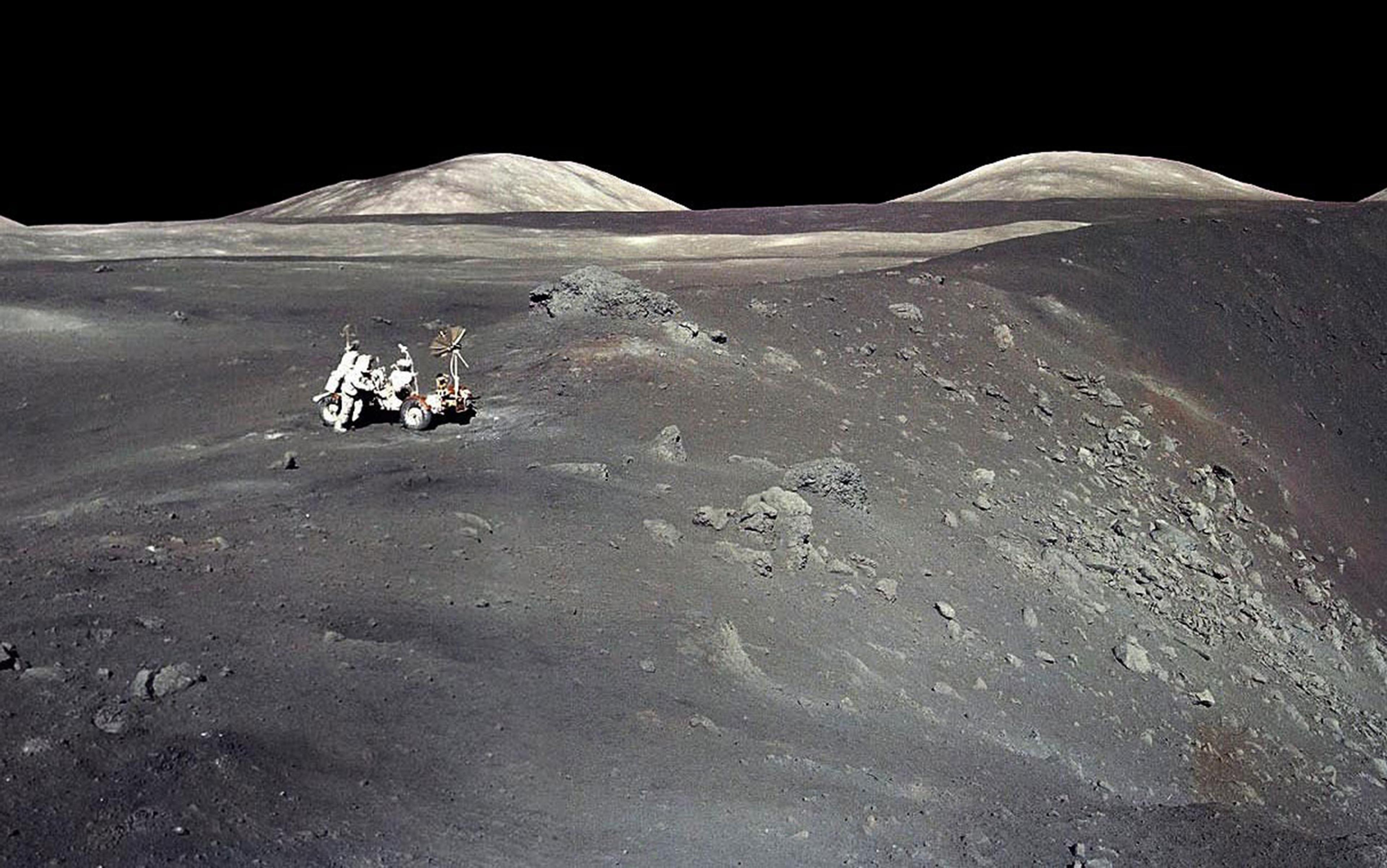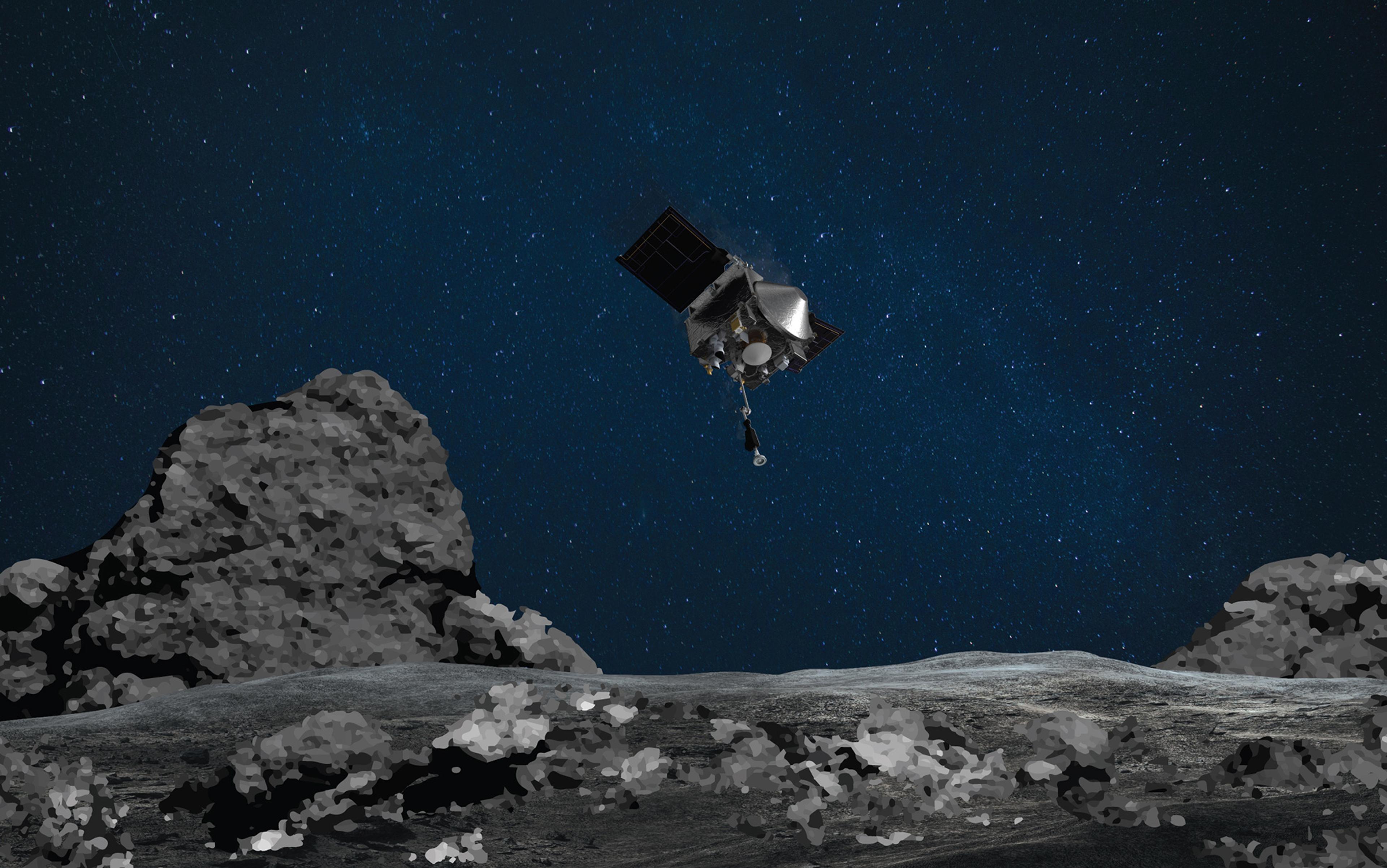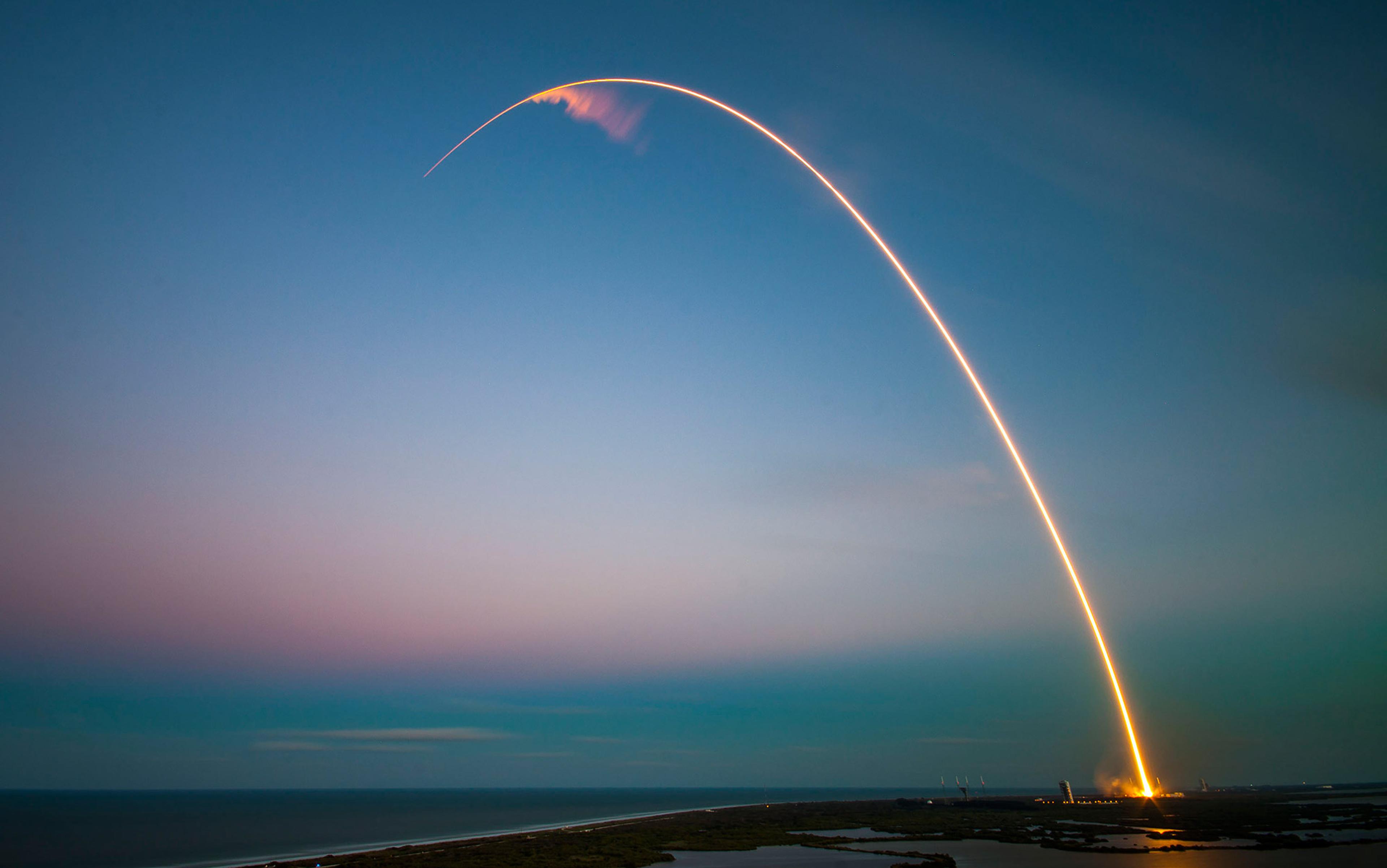This is my lunar acre. There are many like it, billions, but this one is mine. At least, it could be for a modest fee: a steal at $19.95 through Cosmic Registry, $19.99 through Lunar Embassy, or ‘prices to fit any budget’ through Lunar Registry, depending on the quality of the neighbourhood. Going by the health of the real-estate market, you would hardly guess that the last man on the Moon left in 1972.
Unfortunately, some vendors and most lawyers will tell you that these deeds lack legal force. Some will say they fly in the very face of international law, especially the United Nations’ Outer Space Treaty of 1967, which holds that ‘the exploration and use of outer space… shall be carried out for the benefit and in the interests of all countries, irrespective of their degree of economic or scientific development, and shall be the province of all mankind’. But if that sounds like rank anti-capitalism, don’t give up quite yet. International law rarely withstands the passion of the United States Congress, which in 2015 stood up for extraterrestrial property rights.
Over the 2015 Thanksgiving holiday – which, in the spirit of appropriation, seems appropriate – President Barack Obama signed into law the Spurring Private Aerospace Competitiveness and Entrepreneurship (SPACE) Act. It had emerged from House and Senate negotiations with surprisingly robust protections for US asteroid miners. In May, the House had gone only so far as to say that ‘[a]ny asteroid resources obtained in outer space are the property of the entity that obtained them’. In the Senate, commercial space legislation had moved forward without an answer to the question of property. In the strange crucible of the committee process, the bill ended up broader, bolder and more patriotic than either parent.
‘A United States citizen,’ Congress resolved, ‘engaged in commercial recovery of an asteroid resource or a space resource under this chapter shall be entitled to any asteroid resource or space resource obtained, including to possess, own, transport, use and sell the asteroid resource or space resource obtained.’ It’s a turning point, maybe a decisive one, in a remarkable debate over the administration of celestial bodies. It’s an approach with fierce critics – writing for Jacobin magazine in 2015, Nick Levine called it a vision for ‘trickle-down astronomics’ – and the stakes, if you squint, are awfully high. A small step for 535 lawmakers could amount to one giant leap for humankind.
If you hew to the right frame of mind, decisions about space policy have enormous consequences for the future of human welfare. Nick Bostrom, Director of the Future of Humanity Institute at the University of Oxford, offered a stark version of that view in a paper called ‘Astronomical Waste: The Opportunity Cost of Delayed Technological Development’ (2003). By one estimate, he wrote, ‘the potential for approximately 1038 human lives is lost every century that colonisation of our local supercluster is delayed; or, equivalently, about 1029 potential human lives per second’. Suppose you accept that perspective, or for any other reason feel an urgent need to get humanity exploring space. How might a species hurry things up?
For a vocal chorus of pro-space, pro-market experts, the answer starts with property: to boldly go and buy and sell. ‘The only way to interest investors in building space settlements,’ writes the non-profit Space Settlement Institute on its website, ‘is to make doing so very profitable.’ In other words: show me the money.
For all that ‘province of all mankind’ talk, space travel has always been shaped by acquisitive impulses, though historically these have been national rather than private. You might have noticed the American flags on the Moon; the American country musician Brad Paisley has an American song called American Flag on the Moon (2014). In 1969, Congress stipulated that ‘the flag of the United States, and no other flag’ could be planted on any planet by any wholly federal space mission. And if Congresswomen Donna Edwards and Eddie Bernice Johnson have their way (which they almost certainly won’t), there will someday be an American national park on the Moon, embracing ‘all areas of the Moon where astronauts and instruments connected to the Apollo programme between 1969 and 1972 touched the lunar surface’. The world could be forgiven for thinking we mean to own the thing.
Standing in our way is the Outer Space Treaty and, to a lesser extent, the Moon Treaty of 1979. The first is a broadly accepted beam of space law, an agreement that 103 nations and all the major spacefaring powers have ratified. Inconveniently, it resolves: ‘The Moon… is not subject to national appropriation by claim of sovereignty, by means of use or occupation, or by any other means.’ But that proscription might not be as definitive as it sounds. Though the treaty specifies that state parties ‘bear international responsibility’ for the activities of their non-governmental constituents, experts disagree as to how sharply this limits the rights of firms. In any case, the point has gone largely untested until right about now.
Ten years after the first lunar landing, the Moon Treaty aimed to settle the question in favour of collectivism. Its restrictions were broad: that no celestial surface within the Solar System, ‘nor any part thereof or natural resources in place, shall become property of any state, international intergovernmental or non-governmental organisation, national organisation or non-governmental entity, or of any natural person’. It was, in short, not the kind of treaty any session of the US Senate was likely to endorse. Neither Russia nor China signed on either. To date, only 16 countries have ratified it, and today the agreement is functionally defunct. And yet, no conflicting framework has fully triumphed. In orbit and beyond, it’s as if the Cold War never quite ended. The battle between socialism and free enterprise is still on, still radically unsettled, and market forces now seem to have the momentum.
What comes next? The SPACE Act nods without much conviction toward international law, ending on a ‘Disclaimer of Extraterritorial Sovereignty’, but already the bill has come in for legal criticism. Writing for the online magazine The Conversation, Gbenga Oduntan, a senior lecturer in international commercial law at the University of Kent, called the measure ‘a full-frontal attack on settled principles of space law’.
‘If not for the Apollo programme’s success, we’d have made more progress commercially, and lowered launch costs sooner’
For some, that doesn’t sound like such a bad thing. C S Lewis once wrote: ‘If you are on the wrong road, progress means doing an about-turn and walking back to the right road.’ And when we spoke last year, Rand Simberg, an aerospace engineer and space property advocate, said that the private sector was well overdue for a win. In fact, he suggested, the public/private balance in outer space went off the rails at exploration’s high-water mark. ‘Apollo was a disaster,’ he said, ‘whose catastrophic effects hold us back to this day.’
It’s a critique he calls the ‘Apollo Cargo Cult’, a riff on the superstitious groups that grew up around Western war materiel on some Pacific islands. In each appropriations cycle, he argues in The New Atlantis magazine, lawmakers ritually reenact the precedent set by the Moon landings: ‘a government agency would be given a large budget, make plans for the next major steps, determine the single best way to carry them out, and hire contractors to implement the plan’. That approach has delayed humanity’s progress into space, Simberg says. If not for the Apollo programme’s success, he told me, ‘I’m sure we’d have made a lot more progress commercially, and lowered launch costs much sooner. In many ways, Apollo gave us a profoundly un-American space programme.’
Where it should have followed, NASA led and led poorly, or so this line of argument goes. To a certain extent, the SPACE Act of 2015 disrupts that tradition.
That said, Apollo did set a key legal precedent that Simberg and other commercial space advocates cite favourably. The astronauts who walked our rocky satellite brought back samples, and those samples, intuitively, had to belong to somebody. NASA was of the opinion that they belonged to NASA. To prove it, the agency pulled what Berin Szoka and James Dunstan of the US think tank TechFreedom described in Wired as ‘one of the shrewdest moves in the history of international relations’. NASA swapped rocks with the Soviets. Later, in 1993, the Russians would put a few lunar bits up for auction at Sotheby’s. Together those trades set a precedent for traffic in Moonstuff. There it is: a space property market.
The jump from governments selling scientific samples to firms trading in resources, Szoka said, isn’t a major leap. ‘This should be fairly simple,’ he told me before the SPACE Act passed, ‘just apply existing property law. The trick with this is figuring out how big is too big: if you grab a rock, you can own it. But how big a rock?’
For his part, Simberg dreams very, very big. In a 2012 report for the right-leaning Competitive Enterprise Institute, entitled ‘Homesteading the Final Frontier’, he endorsed a model bill aimed at inspiring a private land rush, like the ones that shaped the American West. Called the Space Settlement Prize Act, drafted by the Space Settlement Institute, it depends on interpreting the Outer Space Treaty to allow commercial land claims. In fact, in something of a raspberry to Moon Treaty supporters, the Institute argues that the push for more explicit ownership restrictions should be read as evidence that the Outer Space Treaty leaves that issue unresolved. Simberg noted in his report that the Act ‘would vitiate the 1979 Moon Treaty’. And that, he added, ‘should be viewed as a feature, rather than a bug’.
The homestead analogy is tempting: space, the final frontier. In his ‘We choose to go to the Moon’ speech at Rice University in 1962, President John F Kennedy told a Texas audience: ‘What was once the furthest outpost on the old frontier of the West will be the furthest outpost on the new frontier of science and space.’ NASA leans into the rhetoric too; the agency headlined a 2015 press release on its research into regolith printing as ‘NASA Lays the Groundwork for Homesteading in Space’. The Prize Act would encourage US courts to implement the analogy, recognising ‘land ownership claims based on use and occupation’ beyond Earth, in much the way that the 1862 Homestead Act opened public land to claimants willing to settle it.
But it isn’t obvious that this would be legal. Szoka sharply disputed the suggestion that the Outer Space Treaty has a loophole allowing private land claims: ‘There isn’t. Period.’ And he warned against getting ahead of global opinion. ‘The risk of blowback from the international community is too great,’ he said. The SPACE Act’s assurances are more modest, covering only resources, and even these will probably face international scrutiny. Still, they might be enough to make some individuals very rich, and in the process kick-start a more robust space economy. And to hear it from some of the industry’s most prominent entrants, it could all come to pass quite soon.
In August, Chris Lewicki, the President of Planetary Resources, predicted a functional water and fuel economy ‘in the next 10 years – even in the first half of the 2020s’. Deep Space Industries, one of that firm’s competitors, sees itself mining metals within the next decade. Moon miners are even more bullish; in September, Moon Express signed a launch contract that will put three of the company’s landers on the body starting in 2017. Given the pace at which international law accretes, it’s hard to believe much – legally – will stand in their enterprising way. With this new boost from the US government, firms that succeed will create their own facts.
There comes a point at which Earthbound opinions hardly matter.
To some that sounds sinister, to others like a godsend. After all, much of what’s been achieved in space was achieved despite public indifference. Roger Launius, a space historian at the Smithsonian Institution, pointed out in a 2003 paper that ‘polls in the 1960s… consistently ranked spaceflight near the top of those programmes to be cut in the federal budget’. That attitude is perfectly reasonable. It’s also tragic, deflating, and a little suffocating. Randall Munroe, creator of the web comic XKCD, has a haunting frame for the dynamic: ‘The universe is probably littered with the one-planet graves of cultures which made the sensible economic decision that there’s no good reason to go into space – each discovered, studied, and remembered by the ones who made the irrational decision.’
The SPACE Act of 2015 is the ‘single greatest recognition of property rights in history’
In that light, commercial space advocacy has less to do with profit than with righteous impatience, an abiding frustration with those who ask: ‘Why bother?’
It’s hard to answer except in sweeping terms. For Elon Musk, famously, it’s a matter of guarding against human extinction. For others, the question gets to issues of purpose, destiny, teleology. ‘Earth is the cradle of humanity,’ the Soviet rocket scientist Konstantin Tsiolkovsky wrote, ‘but one cannot remain in the cradle forever.’ The most elemental response you can credit to The West Wing. Challenged to explain why man should go to Mars, the speechwriter Sam Seaborn answers: ‘Because it’s next.’
The push for space property rights supplements that language with a more grounded vocabulary. Bother because you can make a buck. Bother because, at the right price point, space travel could be as sensible as it is seductive. Bother because the market’s clear. If that sounds ignoble, well, appeals to nobility have so far failed.
By most accounts, the state of public-sector space travel is not good. ‘I’ve had to accept that the political will to keep spaceflight going just doesn’t exist anymore, hasn’t for a long time,’ wrote Margaret Lazarus Dean in Leaving Orbit: Notes From the Last Days of American Spaceflight (2015). ‘NASA’s golden age is about to come to a thudding halt,’ wrote David Brown in Vox last year. In 2014, The Washington Post detailed an especially tragic case of waste in a brutal investigation entitled ‘NASA’s $349 Million Monument to its Drift’. As the agency seems to wane and the likes of SpaceX wax, ownership replaces citizenship as our best mode of engaging with space. Is it any wonder that two of the more prominent crowdfunding campaigns in recent memory are the Arkyd space telescope and the Lightsail spacecraft?
Today, what your tax dollars don’t achieve, maybe your Kickstarter contributions can.
It might be that the SPACE Act of 2015 will represent, in retrospect, the keystone of a better model. In a press release, Eric Anderson, Co-Founder of Planetary Resources, was quick to call the law ‘the single greatest recognition of property rights in history’. And while it will almost certainly face challenges, I doubt that anyone can much undermine the broader drive for a market-based space economy.
The pull is too natural: to dream that some corner of another world might be, by title, forever ours.






